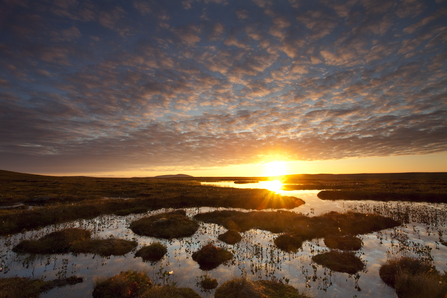Last August, the government announced that the sale of peat compost to amateur gardeners will be banned by the end of 2024. As this is 18 months away, The Wildlife Trusts are urging people to make the switch to peat-free gardening now.
The Wildlife Trusts are disappointed that the ban on commercial use of peat will not happen fully until 2030.
The new handbook, Greener Gardening: Perfecting Peat-Free provides tips and tricks for getting the most out of compost, a guide for making compost at home, and information about buying peat-free products.
Peatlands are the UK’s biggest terrestrial carbon-store, as well as providing vital habitat for wildlife. Research by The Wildlife Trusts revealed that extraction for use in horticulture has caused up to 31 million tonnes of CO2 to be released since 1990.

